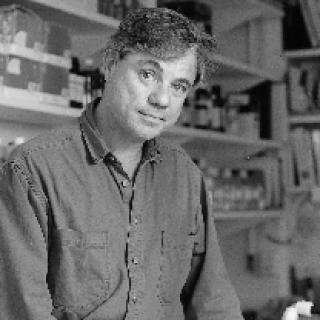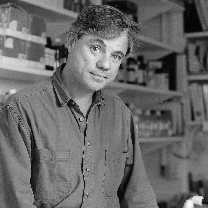
David S. Salomon, Ph.D.
- Center for Cancer Research
- National Cancer Institute
- Building 560, Room 32-40B
- Frederick, MD 21702-1201
- 301-228-4770
- salomond@mail.nih.gov
RESEARCH SUMMARY
The embryonic cell surface signaling protein, Cripto-1, is re-expressed at a high frequency in a number of different cancers, including non-small cell lung carcinomas (NSLC). Dr. Salomon helped to develop a toxin-conjugated humanized monoclonal antibody (Mab) against Cripto-1 as an initial step in developing a targeted therapeutic for NSLC patients. This Mab (BIIB015) was then evaluated for therapeutic efficacy in a Phase II clinical trial. Dr. Salomon was involved in the initial discovery of the mouse and human Cripto-1 genes and in the characterization of the biological activities associated with this family of proteins that function as co-receptors and chaperones for different embryonic signaling pathways such as Nodal, Wnt and Notch, which are essential in the generation and maintenance of embryonic and cancer stem cells.
Areas of Expertise
Biography

David S. Salomon, Ph.D.
Dr. Salomon obtained his Ph.D. degree from the State University of New York at Albany. He was a postdoctoral fellow at the Roche Institute of Molecular Biology in Nutley, NJ, and spent six years as a staff fellow at the Laboratory of Developmental Biology, National Institute of Dental Research. As head of the Tumor Growth Factor Section, he studied the interaction of growth factors and oncogenes in the etiology of breast and colon cancer.
Dr. Salomon retired as a Senior Investigator in 2016 and is now an NIH Scientist Emeritus.